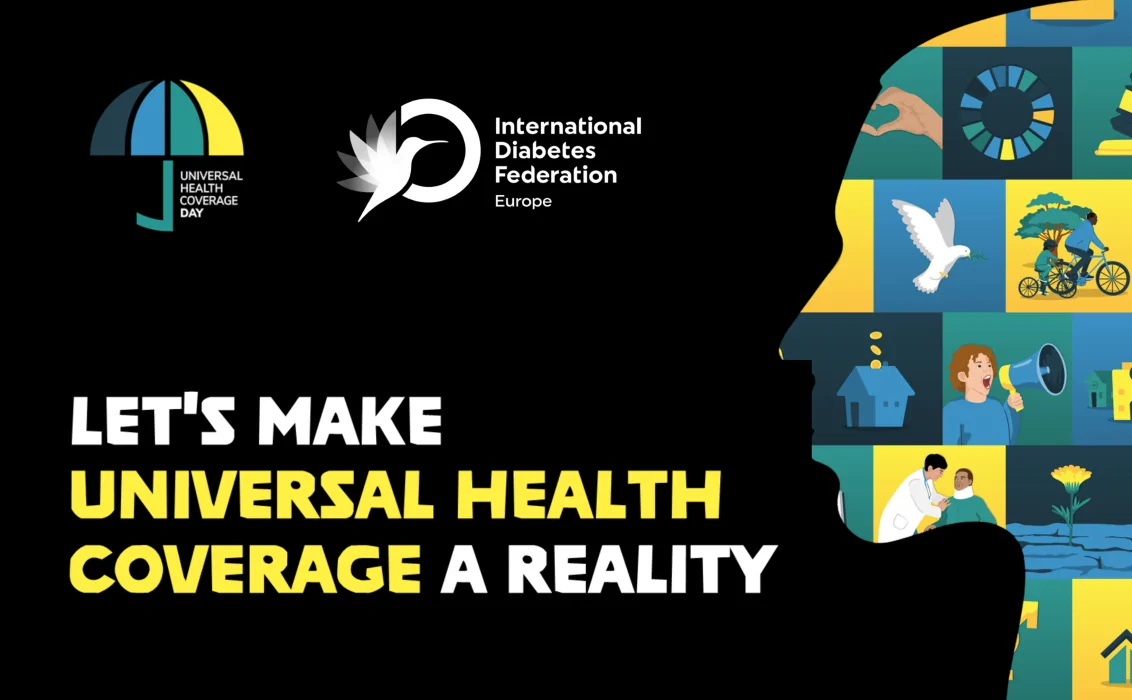In a significant move towards fostering innovation and enhancing healthcare outcomes, on April 24, 2024, the European Parliament (EP) adopted a regulation for the creation of the European Health Data Space (EHDS), with 445 votes in favour, 142 against and 39 abstentions. This adoption is the result of lengthy legislative work between the European Commission, the EP and the Council of the European Union (EU).
The EHDS, a flagship initiative of the EU’s digital transformation of health and care, has two main aims. The first one is to put citizens at the centre of healthcare by giving them control over their data to obtain better healthcare across the EU. The second one is to open up data for research and public health uses. By breaking down care silos and facilitating data interoperability, the EHDS holds the possibility of significantly improving patient care, including for people living with diabetes (PwD). Moreover, this initiative is a core component of creating a strong and resilient European Health Union.
The safeguarding of privacy and data security to ensure trust in the system has been a key focus of discussion
How to foster trust in the system, balancing the need to respect and uphold citizen’s rights and preserve the essence of the data space, was a central part of discussions within the EP. Members of the European Parliament (MEPs) debated at length whether to implement an opt-in or opt-out system which would see citizens either having to opt-in by providing consent for the EHDS to access and use their data or opt-out by withdrawing their consent. The outcomes of the discussions was an agreement on an opt-out mechanism (with some exceptions) whereby patients can limit access to their health data by healthcare professionals (HCPs) and limit their re-use for research purposes. Additionally, Member States (MS) will have the possibility to enforce stricter access rules to sensitive data such as genetic data.
What does the adoption of the EHDS mean in practice?
With the new regulation in place, individuals and HCPs will have easier access to electronic health data, regardless of where they are in the EU. For example, when PwD seek healthcare abroad or seek, or are referred to, other HCPs in their home countries, HCPs will be able to access all necessary health information related to their care. This will help improve evidence-based decision making, reduce the number of duplicate tests and/or examinations, and ultimately enhance patient care. With regard to the re-use of data for research purposes, the EHDS also provides for researchers and policy-makers to gain access to specific kinds of secure health data which can, for example, help with the development of new innovations in medicines and/or medical devices.
Addressing PwD’s needs in the implementation of the EHDS will be key
While the EHDS can be truly transformative, citizens’ digital literacy needs including those of PwD and HCPs must be adequately addressed within the EHDS’ implementation framework for its full potential to be realised. Appropriate education for PwD and HCPs on the tools and systems that will be put in place is a pre-requisite to improving their ability to make the most use of the EHDS, and fostering both equal access to health and a reduction in health inequalities within and between MS.
What’s next?
Following the adoption by the European Parliament on April 24, 2024, the Council will now formally adopt the new EHDS regulation. It is expected to be published in the Official Journal in the autumn of 2024 with the regulation entering into force 20 days after publication.



